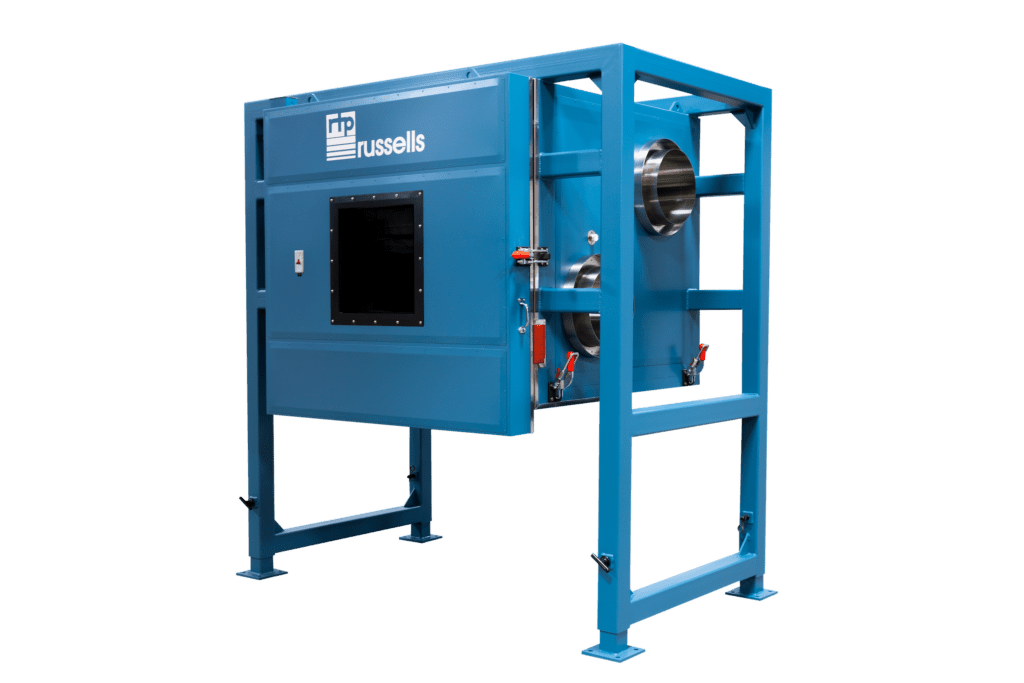Environmental testing is a critical component across industries for designing and building safe and reliable products. Making products safer, stronger, and longer-lasting requires repeated exposure to extreme environmental conditions. The ability to produce those conditions within your facility provides flexibility and efficiency in delivering your products to market expediently.
Some testing applications can be satisfied by a standard, off-the-shelf environmental chamber. These units are offered with pre-engineered dimensions, performance specifications, and features that provide effective and often economical testing capabilities. In some circumstances, the product being tested and/or the test specification requires a unique solution. These particular cases are accomplished with custom environmental chambers which can be designed to meet exact and specific test specifications and requirements.
Determining Custom Environmental Chamber Features
When standard features and performance are insufficient, a custom chamber can be the right solution. Selecting the right equipment can be a challenge, so consider the following four features when determining whether a custom chamber might be required for your testing.
1. Performance
Performance is often the first consideration when buying an environmental test chamber. Temperature and product change rates are determined by your test specifications. Identifying your test profile will provide your manufacturer with valuable information in determining the compressor size and configuration required to achieve those defined parameters. When you need to achieve an elevated temperature ramp rate or pulldown, a more powerful compressor package might be required.
2. Operating Conditions
The operating conditions under which your products need to be tested will dictate the level of heating and cooling customization. A typical standard environmental test chamber can operate within the range of -70°C to 180°C (-94°F to 356°F). Optimizing temperature and humidity within that range is accomplished through a circulation system designed to move conditioned air evenly across the interior workspace. A standard cooling system might incorporate a self-contained mechanical refrigeration system with an air-cooled condenser. A custom chamber that offers further temperature extremes (and temperature change rates) can be accomplished with boost cooling using liquid nitrogen (LN2) or carbon dioxide (CO2).
3. Size
The size of the unit under test (UUT) plays a critical role in chamber selection. While a standard reach-in chamber might accommodate a wide testing variety, larger devices require a unique layout and design. Here your chamber manufacturer will help to navigate the number of products being tested at one time, the mass and materials of the UUT, the size and dimensions of the UUT, as well its fixture requirements. A custom environmental chamber can be designed to contain a unique component or sub-system, all the way up to a hangar-sized enclosure for walk-in or drive-in applications.
4. Unique Features
Unique features and requirements can be a significant component of custom environmental chambers. Door configurations, for example, can be offered in hinged, bi-parting, or vertical lift (guillotine-style) in virtually any size. Your manufacturer can offer access ports in limitless size, configuration, and quantity, while portable or remote conditioning can be accomplished through insulated ducting. Intrinsic safety features like fire suppression, gas detection, and sheath limited heaters can be added to customize a battery test chamber.
What to Expect From Your Manufacturer?
The right environmental chamber manufacturer will walk with you through the selection process to determine the best fit for your testing operations. Because environmental chambers are used in almost every industry imaginable, the best manufacturers will have the right solution for each unique industry application. Prompt and regular communication from initial request to product selection, order, and delivery should be expected. The more complex the system, the higher level of involvement will be required through design and engineering to ensure efficient and timely delivery of a quality custom environmental chamber.
Additional benefits of custom chamber design allow for unique building infrastructure and installation considerations where restrictions may limit normal facility access. Ultimately, a custom chamber design process is unique to each customer and application. The best custom environmental chambers are those designed and manufactured to meet your unique test requirements with reliability and longevity so your customers can count on your products with confidence.
Russells Technical Products offers more than 50 years of experience designing, manufacturing, and supporting custom environmental chambers. Where other manufacturers cannot, Russells Technical Products can. Contact us today to learn why Fortune 500 companies and start-ups trust our team to create the right testing solution so they can deliver for their customers.
